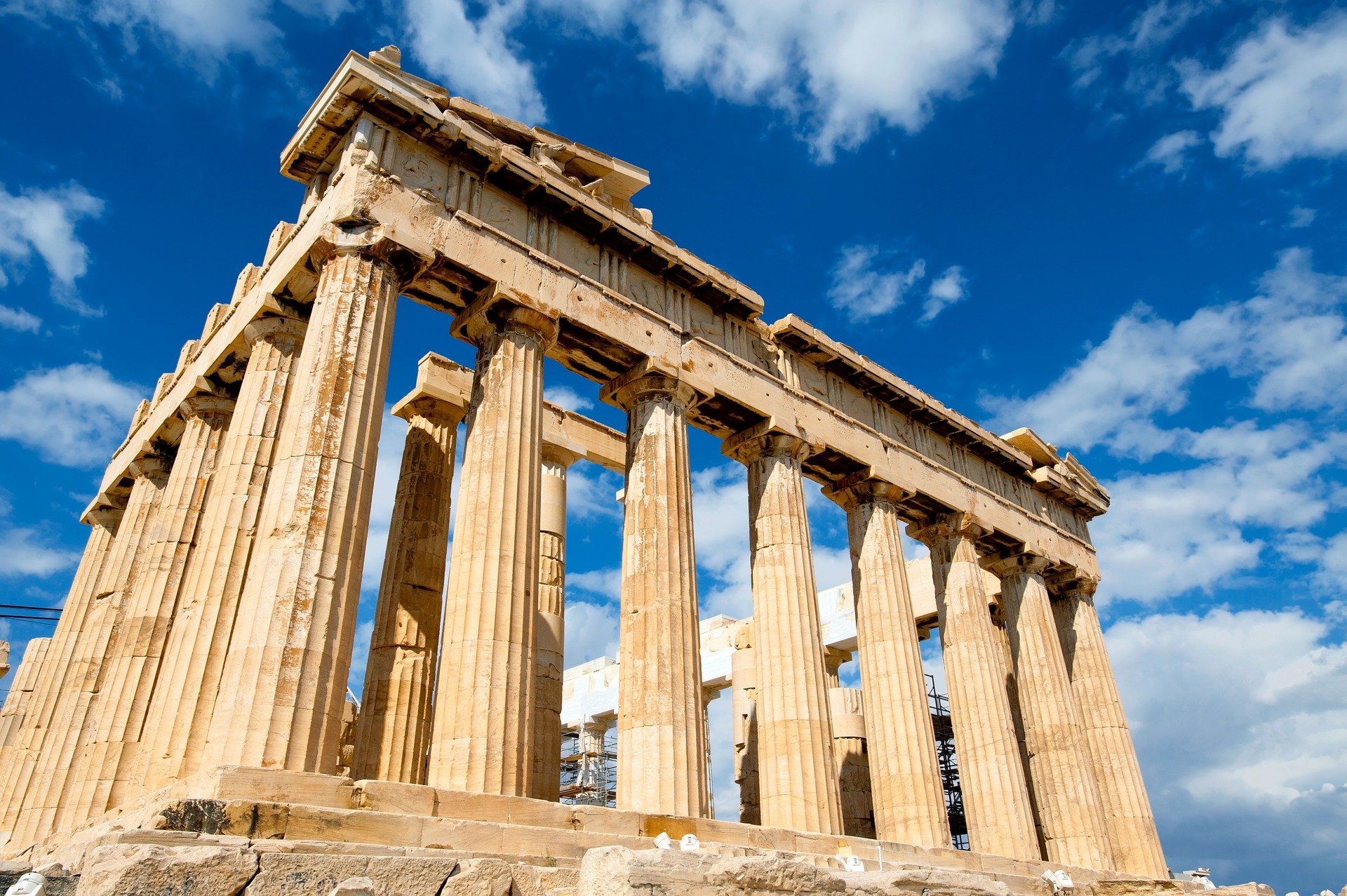Have you ever stopped to think about where our stories on stage, our plays, and even our big concert venues really come from? It's almost amazing how much of what we experience today in the performing arts has roots in a time long, long ago, in a place called ancient Greece. This isn't just about old buildings or dusty history books; it's about how people first gathered to tell tales, to laugh, and to cry together, shaping something truly special that still resonates with us.
Back then, what we now call "theater" wasn't simply entertainment; it was, in a way, deeply connected to daily life, to community gatherings, and to spiritual practices. From its earliest moments, springing from rituals, this form of public expression grew into a sophisticated way of looking at the human condition. It was a place where big questions about right and wrong, about fate, and about what it means to be human were explored in a very public, shared setting, basically.
We're going to take a closer look at how this all began, what kinds of performances were put on, and how these ancient practices still touch our lives and the places we gather for performances even now. You'll get a sense of how something that started as a religious observance grew into an art form that, quite literally, shaped the way we tell stories on stage. We'll also explore some of the places where this history still stands, and how those old ideas still influence our modern world, you know, in a subtle way.
Table of Contents
- The Beginnings of Greek Theater - A Deep Historical Look
- How Did Greek Theater First Appear?
- What Sorts of Tales Did Early Greek Theater Share?
- The Various Kinds of Greek Theater
- Where Can You Still Find Traces of Greek Theater Today?
- Well-Known Sites Connected to Greek Theater
- Accessibility at Modern Greek Theater Venues
- How Does Ancient Greek Theater Still Shape Our World?
The Beginnings of Greek Theater - A Deep Historical Look
The story of what we recognize as theater today really begins in ancient Greece, around the fifth or sixth century before the common era. It wasn't, you know, just something invented for fun. Instead, it grew out of religious practices and communal gatherings, often tied to festivals honoring Dionysus, who was seen as the god of wine and new growth. These early forms of public performance were, in a way, a part of spiritual life, a collective way for people to connect with their beliefs and with each other. The city of Athens, in particular, played a very important part in all of this, becoming a central spot for these early dramatic presentations. So, it's pretty clear that these early forms of public performance were quite significant to the people of the time.
How Did Greek Theater First Appear?
Greek theater, in its earliest stages, was very much connected to these religious celebrations, especially the Dionysia festival in Athens. People would gather, and what began as ritualistic observances, perhaps chants or dances, slowly started to take on a more structured form. It was a gradual change, really, moving from simple religious acts to something that looked more like a dramatic presentation. The first performances that emerged from these roots were tragedies, focusing on serious subjects and the difficult choices people face. These plays often explored big moral questions and the struggles of human existence, giving audiences a chance to think deeply about life's challenges. Later on, other forms started to appear, showing how flexible this art form could be, you know, adapting to different kinds of stories and feelings. It's interesting to consider how these serious beginnings laid the groundwork for everything that followed, basically.
What Sorts of Tales Did Early Greek Theater Bring to Life?
When we think about the stories told on the ancient Greek stage, we're talking about a variety of types, though they often shared common sources. The very first performances, as we discussed, were tragedies. These were serious pieces, usually drawing from well-known stories of gods and heroes, but they were used to explore difficult human experiences and moral quandaries. Audiences would watch characters grapple with fate, loyalty, and the consequences of their actions, which, you know, made for some pretty intense viewing. Following these somber works, another kind of play, called satiric plays, came along. These, too, used the same old mythological subjects, but they approached them in a way that was purely funny, offering a different take on familiar stories. Then, around 490 BCE, comedy made its appearance, often poking fun at everyday life, people, and events. So, it wasn't just one kind of story, but a range of expressions that grew over time, each with its own way of connecting with the audience, you know, whether through tears or laughter.
The Various Kinds of Greek Theater
The evolution of Greek theater from simple religious acts into a sophisticated art form involved the development of distinct types of plays. Tragedy, as we've seen, was the first to take shape, exploring serious themes and often ending in sorrow or profound reflection. These plays, with their focus on human flaws and the workings of destiny, were quite powerful. Then came the satiric plays, which, while using the same mythological backgrounds as the tragedies, aimed for laughter. They offered a lighthearted, sometimes biting, perspective on familiar tales. Finally, comedy arrived, providing a different kind of public amusement. These plays typically dealt with more everyday situations, often using humor to comment on society or human nature. So, you had this interesting mix of serious contemplation and outright fun, all happening on the same stage. This variety, in some respects, allowed for a full range of human emotions and ideas to be presented, influencing how stories would be told for many, many years to come.
Where Can You Still Find Traces of Greek Theater Today?
It's pretty amazing to think that structures built thousands of years ago are still standing, offering a glimpse into how people gathered for performances back then. While the ancient Greek theaters in Greece itself are truly special, the idea of the open-air amphitheater, with its tiered seating and natural acoustics, spread far and wide. The ancient Greeks, it seems, exported this idea to their colonies all around the Aegean Sea. So, you find these old performance spaces scattered across many different places. Beyond those ancient ruins, the spirit and even the design of Greek theater can be seen in modern venues built with a similar purpose. These places, whether old or new, serve as a kind of living connection to that distant past, allowing us to imagine the sounds and sights of those early performances. It’s a bit like stepping back in time, just a little, when you visit one of these spots, really.
Well-Known Sites Connected to Greek Theater
Beyond the actual ruins in Greece, there are some remarkable places that carry on the legacy of Greek theater in a very direct way. For instance, the William Randolph Hearst Greek Theatre, located on the UC Berkeley campus in California, is a truly special spot. It sits in the foothills, offering really beautiful views of the San Francisco Bay, including the Golden Gate and Bay Bridges. This place, which has been around for over a hundred years, has hosted all sorts of entertainers and well-known figures, continuing a tradition of public performance in a setting that feels very much inspired by ancient designs. Similarly, the Greek Theatre in Griffith Park, Los Angeles, California, is another outdoor venue that has been putting on live shows and music concerts since the early 1930s. It's currently owned by the city of Los Angeles and continues to be a very popular spot for events. These places, while not ancient themselves, certainly evoke the feeling of those original performance spaces, allowing modern audiences to experience something quite similar to what ancient audiences might have felt, which is, you know, pretty cool.
Accessibility at Modern Greek Theater Venues
When we talk about places like the Greek Theatre in Los Angeles or the one at UC Berkeley, it's also important to consider how they accommodate everyone today. These modern venues, unlike their ancient counterparts, make efforts to be welcoming to people with various needs. For example, regarding service animals, generally only service animals are allowed at the Greek Theatre in Griffith Park. This means a dog that has been specifically trained to help someone with a disability, including those that provide assistance for psychiatric or neurological conditions. This focus on making events available to a wider audience shows how far we've come from ancient times, ensuring that the experience of live performance can be shared by more people. It’s a thoughtful approach, really, to making sure that the spirit of community, which was so central to early Greek theater, continues in a more inclusive way in our own time.
How Does Ancient Greek Theater Still Shape Our World?
It's quite something to think about how ideas from so long ago still hold sway over how we tell stories and experience live performances today. Ancient Greek theater, in its very essence, was a powerful way to share tales, to entertain, and to comment on society. The way it grew from religious festivals into a refined art form set a pattern for drama that influenced everything that came after it in the Western world. The key elements, the different types of plays like tragedy and comedy, the big themes they explored, and the work of playwrights like Aeschylus, Sophocles, Euripides, and Aristophanes, laid down foundational ideas for storytelling. So, whether you're watching a serious play that makes you think, or a funny show that makes you laugh, you are, in a way, experiencing a direct line back to those ancient stages. It’s pretty clear that the structure of our modern drama, the very ideas of characters facing big dilemmas or everyday absurdities, owe a great deal to those early Greek thinkers and performers. This lasting impact is, you know, a testament to the enduring human need for shared stories and collective experiences.
Related Resources:



Detail Author:
- Name : Colten Kiehn V
- Username : mosciski.sage
- Email : cgrady@gmail.com
- Birthdate : 1997-09-28
- Address : 9743 Gayle Canyon Apt. 475 Lake Laron, LA 31206
- Phone : +1-878-300-9002
- Company : Anderson Ltd
- Job : Distribution Manager
- Bio : Exercitationem ut fugiat animi. Excepturi ut tempora sint enim. Hic illum sed eius alias. Velit et sit voluptates ut. Reiciendis est accusamus repellat iusto iste.
Socials
twitter:
- url : https://twitter.com/padbergj
- username : padbergj
- bio : Sed cum facilis quaerat autem quae voluptas nam. Vel temporibus et consequatur vel non perferendis nam a. Rerum recusandae veniam dolorum omnis.
- followers : 3714
- following : 1174
facebook:
- url : https://facebook.com/javonte_id
- username : javonte_id
- bio : Maiores ducimus et vel et sint.
- followers : 1805
- following : 701